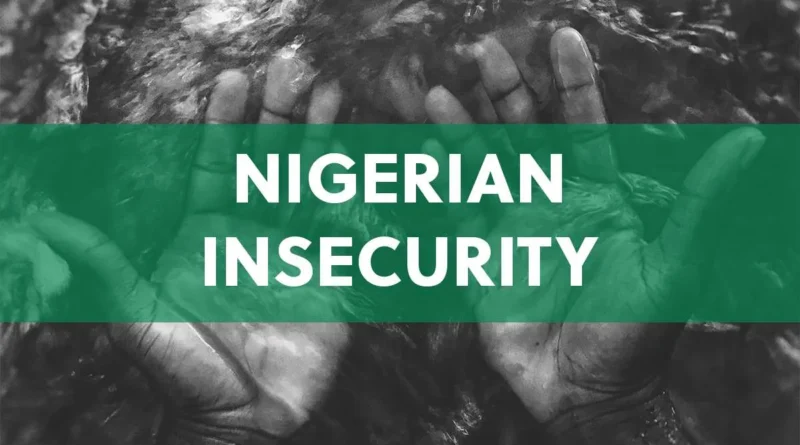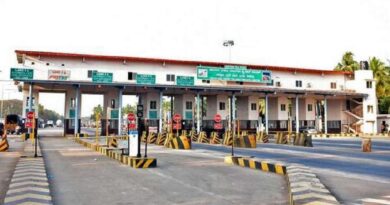Breaking the dangerous circle of climate crisis and insecurity
As climate extremes intensify around the world, Nigeria stands at a critical juncture. In what has become the hottest year on record (2024), the country has endured a wave of overlapping environmental disasters, from scorching heatwaves and devastating floods to advancing desertification, widespread deforestation, and oil-related pollution.
These aren’t random occurrences, they’re clear signs of a worsening climate emergency. And yet, Nigeria, the most populous nation on the continent, remains alarmingly unready to face the challenge.
The impact is most visible in the Lake Chad region, where a mix of soaring temperatures and long-term mismanagement has shrunk one of Africa’s once-vast freshwater bodies by more than 90%.
This environmental breakdown has devastated livelihoods, triggered mass displacement, intensified insurgencies, and worsened poverty.
In Northern Nigeria, desertification steadily advances, eating away at arable land, jeopardizing food production, and heightening tensions between farmers and herders.
Meanwhile, in the South-East, gully erosion continues to destroy homes and vital infrastructure. And in the oil-rich Niger Delta, toxic spills still contaminate the land, waterways, and communities that depend on them.
The Federal Government has made multiple efforts to confront these environmental challenges. Initiatives like the African Union–backed Great Green Wall—designed to rehabilitate degraded land across the Sahel—have seen Nigeria commit to tree planting and the creation of green corridors in 11 vulnerable northern states, including Sokoto, Yobe, and Borno.
Other interventions, such as the Nigeria Erosion and Watershed Management Project (NEWMAP) and the Hydrocarbon Pollution Remediation Project (HYPREP), further reflect a degree of political will. Additionally, policy instruments like the Climate Change Act and the National Forest Policy offer a legal and institutional framework for action.
Nigeria has also signaled its intent to contribute to global climate action through its Nationally Determined Contributions (NDCs), pledging to cut greenhouse gas emissions by 20% unconditionally, and up to 47% with international assistance by 2030.
These commitments focus on scaling up renewable energy sources like solar and hydro, curbing emissions from agriculture and deforestation, advancing climate-smart farming practices, conserving forests, restoring degraded ecosystems, and strengthening water and waste management infrastructure.
However, good intentions alone won’t deliver results. Many of these programmes are faltering, not because of a shortage of strategies, but due to weak implementation.
A significant number of the initiatives outlined in Nigeria’s NDCs, such as afforestation, renewable energy expansion, and sustainable farming, are targeted at climate-vulnerable zones like the North-East and North-Central.
Ironically, these are also the regions most disrupted by insecurity, insurgency, banditry, and ongoing clashes between farmers and herders, making sustained progress increasingly difficult.
While clean cooking and solar power feature prominently in Nigeria’s climate commitments, progress on the ground remains sluggish.
Plans to transition 50% of households to LPG or improved cookstoves by 2030 face serious setbacks due to rising costs and dependence on imports.
Similarly, large-scale solar energy projects are stalling under the weight of high financing costs and the absence of government guarantees—though smaller, off-grid solar solutions are beginning to gain traction.
The Great Green Wall initiative, once a symbol of regional resilience, is now faltering due to chronic underfunding and persistent insecurity in the North-East.
Widespread insurgency in the region severely hampers efforts to plant trees, roll out clean energy, or conserve water.
Ongoing conflict continues to cut off farmland, destroy infrastructure, and obstruct humanitarian aid. Without peace, climate interventions cannot thrive. Yet the environmental crisis is also fueling insecurity, driving displacement, triggering resource-based clashes, and destabilizing local economies.
Read Also: Varsity students to face drug tests, says education minister
While NEWMAP has delivered pockets of success, it cannot match the pace and scale of erosion across the country. HYPREP, tasked with cleaning up the polluted Ogoni region, remains hamstrung by bureaucratic red tape and frequent delays. Meanwhile, unchecked gas flaring, illegal logging, and oil spills persist with little accountability.
At the core of it all lies a sobering reality: insecurity is paralyzing climate action, while weak governance is intensifying that insecurity.
In conflict-ridden areas like Borno, Yobe, and Zamfara, violence has made it nearly impossible to plant trees, restore land, or deploy renewable energy systems.
As Lake Chad continues to recede, dwindling resources are inflaming farmer-herder clashes, which are increasingly taking on ethnic and religious dimensions.
The dual crises of conflict and climate have displaced millions, who now flood into overstretched cities, putting immense pressure on water supplies, housing, and food systems.
This insecurity also prevents the collection of reliable data, disrupts project monitoring, and increases the risk of misappropriated funds. Without peace and effective oversight, Nigeria’s climate targets remain out of reach.
And if those targets are missed, environmental decline will further exacerbate conflict. The cycle is vicious—and dangerous. Worse still, ongoing insecurity deters climate donors and investors.
Nigeria’s access to international funding, through mechanisms like the Green Climate Fund, the Adaptation Fund, or bilateral partnerships, hinges on demonstrating capacity and stability, both of which are eroded by persistent conflict. As a result, the financial backing needed to reach more ambitious emissions targets is increasingly out of reach.
This is a crisis loop that must be broken.
Environmental protection must be treated as a matter of national security. Nigeria must weave climate resilience into its peace-building strategies, empower communities to manage natural resources responsibly, and ensure security forces protect, rather than jeopardize environmental assets.
Key programmes like HYPREP need urgent reform, consistent funding, and strong accountability mechanisms. Climate finance should prioritize green job creation, especially for at-risk youth who might otherwise be drawn into violent groups.
The Federal Government must also hold polluting oil firms accountable, dismantle illegal logging networks, and work collaboratively with states and communities to enforce environmental regulations. Climate action cannot remain a secondary concern—it must be central to national planning and governance.
In principle, Nigeria aligns with the Paris Agreement. But in practice, progress depends entirely on how well systems are implemented, how funds are mobilized, and how committed political leaders are to turning pledges into tangible outcomes—particularly in frontline communities facing the worst climate impacts.
The shrinking Lake Chad, the polluted creeks of Ogoniland, and the disappearing forests of Cross River are not isolated environmental tragedies; they are vivid reflections of a deeper systemic failure to safeguard people and ecosystems.
But they can also become powerful rallying points—a call for bold leadership that sees environmental protection not just as an ecological duty, but as a path to survival, national stability, and justice.
Content Credit | Olaoluwa Ayomide
Image Credit | guardian.ng




